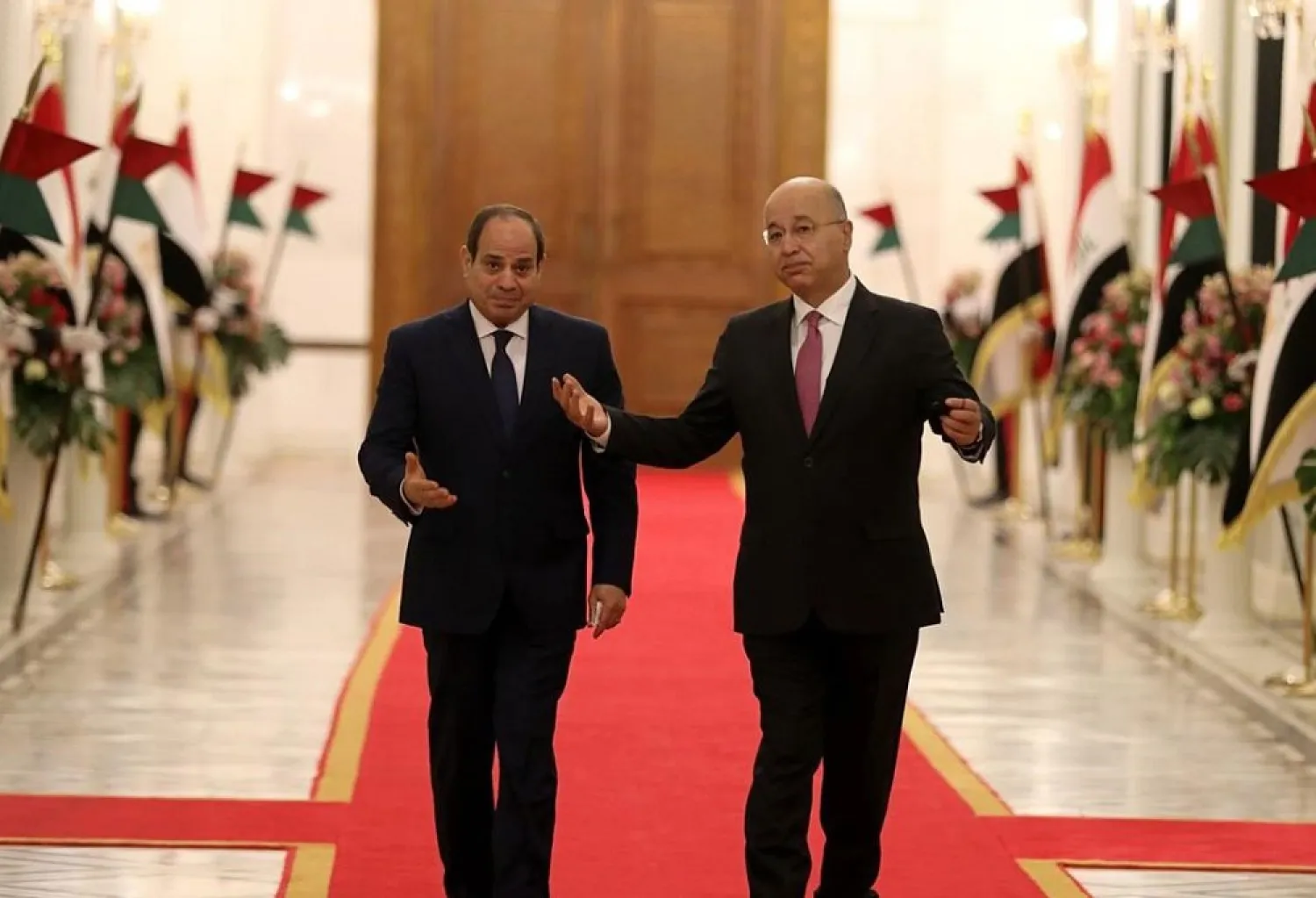Arab heads of state and senior officials from the region held a rare meeting Saturday at a conference hosted by Iraq. The meeting is aimed at easing Middle East tensions and underscored the Arab country’s new role as mediator.
French President Emmanuel Macron also attended the Baghdad meeting, hailing it as a major boost for Iraq and its leadership. The country had been largely shunned for the past few decades because of security concerns amid back-to-back wars and internal unrest, its airport frequently attacked with rockets by insurgents.
On Saturday, Iraqi leaders were on hand at Baghdad International Airport to receive the red carpet arrivals. They included Egyptian President Abdel Fattah al-Sisi, Jordan’s King Abdullah and Qatar’s Emir Sheikh Tamim bin Hamad Al Thani. It was the first official visit to Iraq by the Qatari emir. Among the participants were also Saudi Foreign Minister Prince Faisal bin Farhan.
Iran’s new foreign minister, Hossein Amir-Abdollahian, was also present.
The high-level meeting in Baghdad sent a message of Arab solidarity with Iraq, which has increasingly been pulled into Iran’s orbit in recent years.
“This summit marks the return of Iraq as a pivotal player in the region,” said political analyst Ihsan al-Shammari, who heads the Iraqi Political Thinking Center in Baghdad. “Having rival parties be seated at the same table is a significant step in that direction.”
Iraqi special forces deployed in Baghdad, particularly around the Green Zone, seat of the Iraqi government, where the meeting was held. Participants were expected to discuss a regional water crisis, the war in Yemen and a severe economic and political crisis in Lebanon that has brought the country to the point of collapse.
Lebanon, which has been without a functional government for the past year, and Syria, which has been suspended from the Arab League since 2011, were not represented at the meeting.
Macron, whose country is co-organizing the meeting, described Saturday’s meeting as “historic,” showcasing Iraq’s return to stability following the ruinous war against the ISIS group, which was defeated in 2017.
Sunday’s meeting was a chance for Iraqi leaders to underscore their recent efforts to portray Iraq as a neutral mediator in the region’s crises and re-engage with the world after decades of conflict.
“Iraq, which for years has been a headline for war and conflicts, is hosting leaders and representatives of the region today to affirm their support for Iraqi sovereignty and prosperity,” said President Barham Salih.
Iraq’s message at the summit is that it stands at the same distance from all sides, an Iraqi government official told The Associated Press. He spoke on condition of anonymity because he was not authorized to give official statements.
After decades of conflict, Iraq is seeking to reclaim a leadership role and status in the Arab world with a centrist policy and a determination among the country’s top leaders to maintain good relations with both Iran and the United States and its regional allies.









